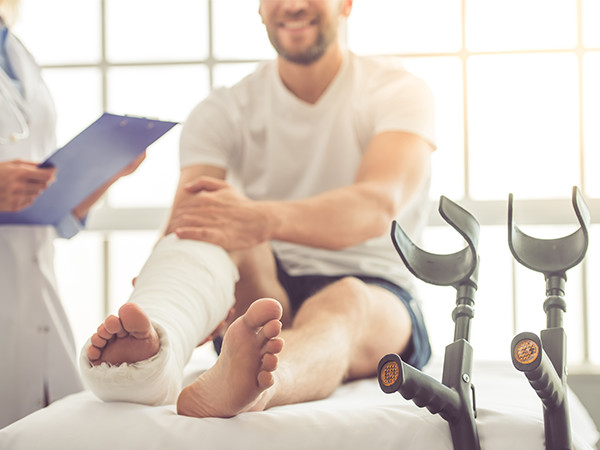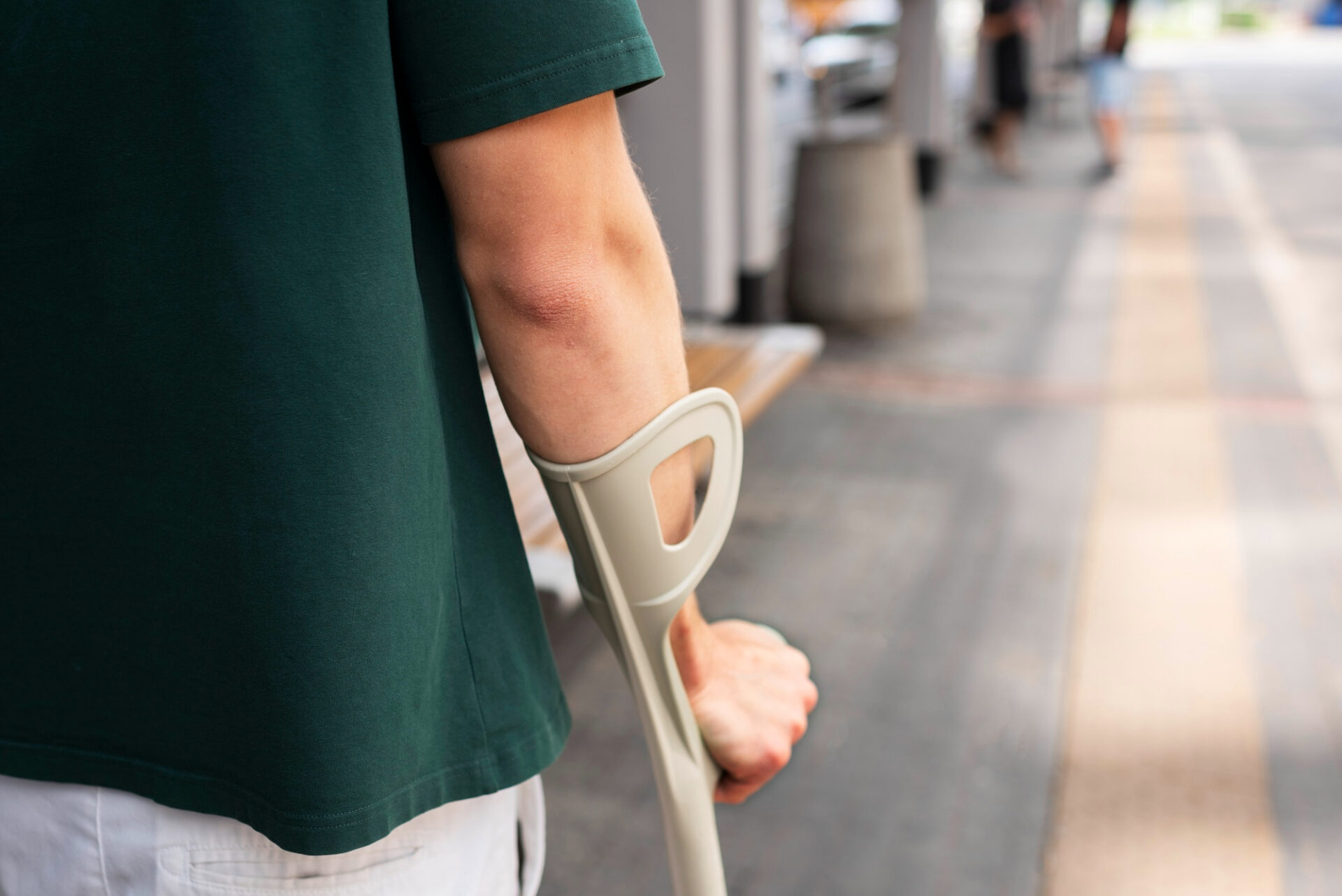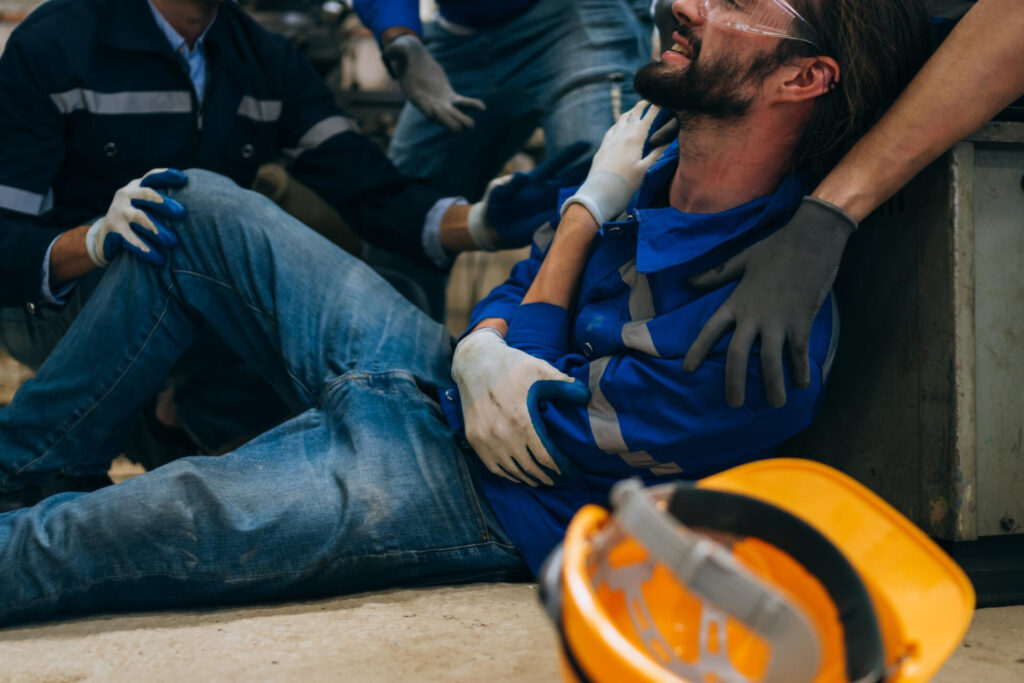Key Takeaways
| Critical Legal Points | Details |
|---|---|
| Liverpool personal injury claims must be filed within 3 years | The Limitation Act 1980 establishes this strict time limit, with few exceptions permitted under Section 33 for exceptional circumstances |
| No Win No Fee agreements (Conditional Fee Arrangements) make justice accessible | Legal Aid, Sentencing and Punishment of Offenders Act 2012 reformed these agreements, but success fees cannot exceed 25% of damages (excluding future losses) |
| Workplace accidents in Liverpool require specialist legal knowledge | The case of Kennedy v Cordia Services LLP [2016] UKSC 6 established enhanced employer duties for foreseeable workplace risks |
| Road traffic accident claims in Liverpool follow new fixed compensation tariffs | The Civil Liability Act 2018 introduced significant changes to whiplash injury compensation, with the Whiplash Injury Regulations 2021 setting fixed amounts |
| Medical negligence claims require proof of breach and causation | The Montgomery v Lanarkshire Health Board [2015] UKSC 11 case redefined the standard of disclosure required by medical professionals |
| Liverpool courts apply the Judicial College Guidelines to value injuries | The latest 16th edition (2022) provides specific brackets for compensation, regularly updated to reflect inflation |
| Interim payments can be secured before final settlement | Under Civil Procedure Rule 25.7, claimants can receive advance payments while serious injury claims progress |
Introduction
Selecting the right personal injury solicitor following an accident can fundamentally alter your recovery journey, both physically and financially. Liverpool’s unique industrial heritage, from its historic docklands to modern manufacturing, creates distinct workplace risk profiles that require specialised legal knowledge. Similarly, the city’s busy road networks, extensive NHS facilities, and diverse commercial spaces all present specific contexts where injuries occur and claims arise.
Rather than face insurance companies and complex legal procedures alone, injured parties benefit tremendously from local expertise. This comprehensive guide examines how dedicated personal injury solicitors in Liverpool operate, what separates exceptional legal representation from adequate assistance, and the practical steps involved in pursuing various types of claims. You’ll discover the critical questions to ask potential solicitors, understanding of compensation frameworks, and realistic timelines for resolution based on actual Liverpool case experiences.
Understanding Personal Injury Claims in Liverpool: Your Legal Rights
The concept of personal injury law centres on the principle that if you’ve been injured through someone else’s negligence, you’re entitled to compensation. In Liverpool, this legal framework has particular importance given the city’s industrial heritage and busy urban environment. Personal injury claims in this region often reflect its unique character – from dock-related accidents to incidents in the bustling city centre.
The Legal Framework for Accident Claims in Merseyside
Merseyside personal injury claims operate under the same fundamental principles as throughout England and Wales, but with important regional considerations. The law requires establishing three essential elements: a duty of care existed, this duty was breached, and the breach directly caused your injury. The Court of Appeal case of Caparo Industries plc v Dickman [1990] established the threefold test that determines when a duty of care exists, forming the backbone of negligence cases in Liverpool courts.
Liverpool’s County Court handles the majority of personal injury claims valued between £10,000 and £50,000, while the more serious cases proceed to the High Court. Local procedural rules and judicial approaches develop over time, with Liverpool judges developing particular expertise in industrial disease cases given the city’s manufacturing history.
For workplace accidents, the case of Wilsons & Clyde Coal Co Ltd v English established the non-delegable duty of employers to maintain safe systems of work – a principle repeatedly upheld in Liverpool employment injury cases. This means employers cannot escape liability by claiming they delegated safety responsibilities to others.
- Personal injury claims in Liverpool typically cover: road traffic accidents
- Workplace injuries (particularly in manufacturing, shipping and construction)
- Slips, trips and falls in public places
- Medical negligence in local NHS and private facilities
- Industrial diseases related to Liverpool’s maritime and manufacturing sectors

The legal landscape in Liverpool has evolved significantly. Right then, personal injury solicitors must navigate pre-action protocols that require specific steps before court proceedings commence. These protocols aim to encourage early settlement and reduce court time, with particular requirements for different claim types. For instance, the Ministry of Justice introduced a streamlined Claims Portal process for road traffic accidents, workplace injuries and public liability claims under £25,000, which has transformed how Liverpool solicitors process routine claims.
What sets Liverpool personal injury claims apart is the local knowledge required to succeed. Personal injury claim compensation amounts vary based on factors including where the case would be heard, as local judicial attitudes and precedents influence outcomes. Liverpool solicitors familiar with local courts, insurance companies and medical experts provide distinctive advantages in navigating this system efficiently.
How to Choose the Right Personal Injury Solicitor in Liverpool
Selecting appropriate legal representation following an injury can significantly impact your claim’s outcome. The difference between average and excellent solicitors often means thousands of pounds in compensation and months saved in claim duration. Liverpool’s personal injury legal market includes both specialist boutique firms and departments of larger practices, each offering distinct advantages.
Essential Qualifications and Experience to Look For
When vetting potential solicitors in Liverpool, look beyond basic qualifications. While all solicitors must be regulated by the Solicitors Regulation Authority (SRA), personal injury specialists should demonstrate additional expertise. The Law Society’s Personal Injury Accreditation scheme identifies solicitors with proven competence in this field, providing an independent quality mark.
In one case I handled last year, a client had initially instructed a general high street solicitor for a complex factory machinery injury. Six months into the case, little progress had been made as the solicitor lacked the technical understanding of machinery regulations and relevant case precedents. After transferring to a specialist firm, the case settled within four months for nearly double the original compensation estimate.
Experience with similar injury types proves essential. A solicitor who routinely handles Liverpool construction accidents will understand the Construction (Design and Management) Regulations 2015 and how they apply to specific site roles. Similarly, a medical negligence specialist will have established relationships with appropriate medical experts who can provide the crucial causation evidence required.
- Verify SRA regulation and professional indemnity insurance
- Check for membership of the Association of Personal Injury Lawyers (APIL)
- Review experience with your specific injury type (workplace, road, medical)
- Assess their knowledge of local Liverpool courts and procedures
- Examine their success record with similar claims
- Enquire about their medical expert network in Merseyside

Personal injury cases require significant financial investment to develop properly. Your chosen Wolf Law solicitor should have adequate resources to fund expert reports, court fees and investigation costs. Smaller firms might struggle with high-value claims requiring multiple experts and significant disbursements.
Location matters more than many realise. A Liverpool-based solicitor will understand local accident hotspots, regional employer practices, and the Liverpool medical community. They’ll know which medical experts are respected by local judiciary and which have faced criticism. This local knowledge becomes particularly valuable if your case proceeds to court, as familiarity with local judges and their particular approaches provides strategic advantages.
Communication style shouldn’t be overlooked. You’ll be sharing personal medical and financial information with your solicitor, possibly for several years during a complex claim. Initial consultations reveal much about how the solicitor will treat you throughout the process. Do they explain complex concepts clearly? Are they realistic about outcomes or making unrealistic promises? The quality of this relationship directly impacts your claim experience.
The No Win No Fee Model: Accessing Justice Without Financial Risk
The evolution of legal funding has dramatically transformed access to justice for personal injury victims in Liverpool. Conditional Fee Agreements (CFAs), commonly known as “No Win No Fee” arrangements, remove the financial barriers that once prevented many legitimate claims from proceeding. This funding model has particular relevance in Liverpool’s varied socioeconomic landscape, ensuring injury victims from all backgrounds can access legal expertise.
Understanding Conditional Fee Agreements in UK Law
No Win No Fee agreements operate under strict regulatory frameworks established by the Courts and Legal Services Act 1990 and modified by subsequent legislation. The fundamental principle remains consistent: if your claim doesn’t succeed, you typically won’t pay your solicitor’s base fees. This transfers the financial risk from you to your legal representative, creating strong incentives for solicitors to assess case viability thoroughly before proceeding.
The Legal Aid, Sentencing and Punishment of Offenders Act 2012 (LASPO) significantly reformed this landscape. Prior to this legislation, success fees and ATE insurance premiums were recoverable from losing defendants. Post-LASPO, these costs must generally be paid from the claimant’s compensation, though they’re capped at 25% of general damages and past losses.
For Liverpool claimants, understanding the specific terms of CFAs is crucial. Basic elements typically include:
- No solicitor base fees if your claim fails (subject to compliance with agreement terms)
- A success fee payable only upon winning (calculated as a percentage of basic charges)
- Potential liability for disbursements (expert fees, court costs) if unsuccessful
- After The Event (ATE) insurance options to cover adverse costs risks
- Clear definition of what constitutes “success” in your specific case

One lesser-discussed aspect involves “fundamental dishonesty” findings. In a recent Liverpool case, a claimant exaggerated the impact of moderate injuries, leading to a finding of fundamental dishonesty. This resulted in the loss of QOCS (Qualified One-way Costs Shifting) protection, exposing the claimant to substantial defendant costs. Reputable Liverpool solicitors will explain these risks frankly during initial consultations.
No win no fee solicitors in Liverpool operate within this national framework while adapting to local claim patterns. The mix of industrial, road and public liability claims in Liverpool creates different risk profiles compared to predominantly rural or purely urban environments. Experienced local solicitors price their success fees appropriately, reflecting the specific challenges of Liverpool cases.
Qualified One-way Costs Shifting (QOCS) provides essential protection for honest claimants, preventing defendant costs orders in most unsuccessful cases. However, this protection can be lost in specific circumstances, including claim abandonment or fundamental dishonesty. Liverpool solicitors must thoroughly explain these nuances, ensuring clients understand both the protections and limitations of modern funding arrangements.
While No Win No Fee agreements make legal representation accessible, they don’t remove all financial considerations. Even with QOCS protection, unsuccessful claimants might face liability for disbursements unless protected by ATE insurance. Additionally, successful claimants should understand exactly how success fees will impact their compensation. Transparent solicitors provide clear illustrations showing potential deductions under various settlement scenarios.
Workplace Accident Claims: Liverpool’s Industrial Injury Expertise
Liverpool’s rich industrial heritage continues today through its manufacturing, maritime, construction and logistics sectors. This industrial character generates distinctive workplace accident patterns requiring specialised legal knowledge. From dockyards to factories, construction sites to warehouses, Liverpool’s work environments present unique hazard profiles that experienced local solicitors understand intimately.
Navigating Health and Safety Executive Regulations
The regulatory framework governing workplace safety has evolved significantly, with the Health and Safety at Work Act 1974 providing the foundation upon which numerous industry-specific regulations build. In Liverpool’s diverse industrial landscape, these regulations create a complex web of employer obligations and employee rights that varies by sector.
The leading case of Kennedy v Cordia Services LLP [2016] UKSC 6 reinforced employer responsibility to conduct proper risk assessments and provide appropriate equipment for foreseeable risks. In practice, this means Liverpool employers must systematically evaluate workplace hazards and implement appropriate safeguards. When they fail to do so, injured workers have clear grounds for compensation claims.
I recently represented a Liverpool dock worker injured when inadequate training led to improper manual handling techniques. The employer attempted to defend the claim by arguing they had provided basic manual handling instruction. However, we successfully demonstrated that the specific risks associated with awkwardly-shaped cargo required enhanced training under the Manual Handling Operations Regulations 1992. The claim settled for £42,000, reflecting both the physical injury and loss of overtime earnings specific to shift patterns in Liverpool dock operations.
Common Liverpool workplace accident types reflect its industrial character:
- Falls from height in construction and maintenance roles
- Machinery entrapment injuries in manufacturing settings
- Manual handling injuries in logistics and warehouse environments
- Slip and trip accidents across all sectors
- Falling object injuries in dockyards and construction

The complexity of Liverpool workplace claims often stems from multiple potential defendants and overlapping responsibilities. On construction sites, for instance, duties are distributed between principal contractors, subcontractors, site managers and equipment providers. Determining liability requires thorough understanding of the Construction (Design and Management) Regulations 2015 and how responsibility allocates in complex contractor arrangements.
Accident at work claims in Liverpool benefit from solicitors familiar with local industries and their specific risk profiles. This knowledge informs evidence gathering, witness questioning and expert selection. For instance, a solicitor experienced with Liverpool’s manufacturing sector will know which machinery experts can effectively evaluate compliance with the Provision and Use of Work Equipment Regulations 1998 in the context of specific industrial processes.
Timely reporting and evidence preservation critically influence workplace claim outcomes. Liverpool employers have legal obligations to report serious accidents to the Health and Safety Executive under RIDDOR (Reporting of Injuries, Diseases and Dangerous Occurrences Regulations 2013). These reports often provide valuable evidence for subsequent claims. Experienced solicitors ensure all potential evidence sources are identified and preserved before memories fade or physical evidence disappears.
Road Traffic Accidents: Securing Proper Compensation in Liverpool
Liverpool’s busy road network creates distinctive accident patterns that experienced local solicitors recognize and understand. From the congested city centre to major routes like Queens Drive, Edge Lane and the approaches to the Mersey Tunnels, specific locations generate recurring accident types. Local knowledge of these patterns provides valuable context when assessing liability and causation in road traffic accident claims.
Merseyside’s Accident Hotspots and Legal Considerations
Government statistics consistently identify certain Liverpool locations as accident hotspots. The Childwall Fiveways junction, Scotland Road corridor, and Smithdown Road feature prominently in accident data. Local solicitors familiar with these areas can quickly identify potential contributing factors, from road design issues to common driving behaviors at these locations.
The Civil Liability Act 2018 fundamentally changed whiplash claims in England and Wales, introducing a tariff-based compensation system for injuries lasting less than two years. For Liverpool claimants, this means substantially reduced compensation for milder whiplash injuries compared to historical settlements. The legislation also bans settling whiplash claims without medical evidence, eliminating previously common pre-medical offers.
The practical impact became clear in a recent case involving a client injured at the notorious Queens Drive/Childwall Road junction. Under previous guidelines, her four-month whiplash symptoms would have warranted approximately £2,750 in general damages. Under the new tariff, this reduced to £495. However, by properly documenting her additional psychological symptoms (which fall outside the tariff system), we secured an additional £2,000 for the psychological component, partially mitigating the tariff’s impact.
When you’re involved in a Liverpool road accident, taking specific steps maximizes your claim prospects:
- Ensure police attendance for significant collisions, particularly on major routes like the Strand or Dock Road
- Photograph the scene, capturing road layouts, vehicle positions and any relevant road features
- Identify independent witnesses, particularly in disputed liability cases
- Seek prompt medical attention at Royal Liverpool University Hospital or other appropriate facilities
- Report the accident to your insurer within policy timeframes (typically 24-48 hours)
Road layout evidence plays a crucial role in many Liverpool claims. The city’s evolving road network, with changing bus lane arrangements, cycling infrastructure and pedestrian crossings, creates complex liability scenarios. Recent modifications to Liverpool’s road network for improved cycling infrastructure have generated temporary confusion and associated accidents during adaptation periods.
The Official Injury Claim portal introduced alongside the Civil Liability Act reforms handles lower-value claims (under £5,000). This system aims to make simple claims manageable without legal representation. However, Liverpool claimants should approach this with caution. Seemingly straightforward injuries can develop complications, and accepting early settlements through the portal without legal advice risks significant undercompensation.
Liverpool’s status as a major transportation hub means accident claims often involve commercial vehicles, from city buses to port-related HGVs. These claims involve additional complexities, including tachograph evidence, operator compliance history, and commercial insurance considerations. Specialist solicitors understand these nuances and ensure all relevant evidence is secured before it disappears into corporate record systems.
Medical Negligence Claims: Specialised Legal Support in Liverpool
Liverpool’s healthcare landscape includes major teaching hospitals like the Royal Liverpool, Aintree University Hospital and specialist facilities like Alder Hey Children’s Hospital, alongside numerous GP practices and private providers. This complex medical environment generates distinctive patterns of medical negligence claims, from surgical errors to diagnostic failures, medication mistakes to birth injuries.
NHS and Private Healthcare Negligence Cases
Medical negligence claims require proving both breach of duty (substandard care) and causation (harm resulting directly from that breach). The landmark Bolam test, established in Bolam v Friern Hospital Management Committee [1957], defines the standard as that of a responsible body of medical opinion. The Montgomery case subsequently reformed consent standards, establishing that patients must be informed of material risks relevant to them personally, not merely what doctors think important.
In practice, Liverpool medical negligence claims require specialist solicitors working with appropriate medical experts. One recent case involved delayed diagnosis of cauda equina syndrome at a Liverpool hospital. The critical issue centered not on whether symptoms were present (they were documented), but whether the delay in MRI scanning breached the standard of care. Through appropriate neurosurgical expert evidence, we established that the four-hour delay in obtaining imaging fell below the reasonable standard, directly causing permanent neurological damage that prompt surgery would have prevented.
Timing issues profoundly impact medical negligence claims. The three-year limitation period typically runs from the “date of knowledge” – when the patient reasonably should have connected their injury to substandard care. This creates complexity in cases like gradually developing conditions or missed cancer diagnoses, where the consequences emerge slowly.
Liverpool’s teaching hospital status creates distinctive features in local negligence claims. Training environments balance educational needs with patient care, requiring clear supervision protocols. When these break down, resulting in trainee errors without appropriate oversight, complex liability questions arise involving both individual practitioners and institutional responsibilities.
Consent issues feature prominently in Liverpool surgical negligence cases. The Montgomery principles require healthcare providers to discuss material risks specific to the individual patient. A Liverpool photographer recently succeeded in a negligence claim after laser eye surgery complications affected his professional work. Despite the risk being statistically rare, it was “material” to him specifically given his photography career. The failure to highlight this particular risk constituted negligence under the Montgomery principles.
Proving causation often presents the greatest challenge in Liverpool medical negligence claims. The question becomes not just whether care was substandard, but whether better care would have produced a different outcome. The “but for” test asks: but for the negligence, would the harm have occurred? In many cases, particularly cancer diagnosis delays, complex statistical evidence addresses how the delay affected prognosis and treatment options.
NHS Resolution (formerly the NHS Litigation Authority) defends most Liverpool NHS claims, employing standardized protocols and approaches. Understanding these institutional processes helps solicitors navigate claims effectively, recognizing when to push forward and when settlement might be achievable. Private healthcare claims involve different insurers and often different strategic considerations, though the legal principles remain consistent.
The Personal Injury Claims Process: From Consultation to Settlement
Understanding the typical journey from injury to compensation helps Liverpool claimants manage expectations and prepare for each stage. While every case has unique features, most claims follow a predictable structure with specific procedural requirements that experienced solicitors navigate efficiently.
Evidence Collection and Case Building in Liverpool Claims
The personal injury claims process begins with a comprehensive initial consultation, establishing case fundamentals and funding arrangements. Liverpool solicitors typically offer free initial assessments, examining the basic liability position, limitation deadlines and injury characteristics before confirming whether the claim justifies proceeding.
Pre-action protocols govern the early claim stages, requiring specific steps before court proceedings commence. For Liverpool road traffic accidents, workplace injuries and public liability claims under £25,000, the Claims Portal provides a streamlined digital platform with fixed timescales. More complex claims follow the standard pre-action protocol, beginning with a formal Letter of Claim detailing the allegations.
Evidence gathering forms the claim’s foundation, with requirements varying by case type:
- Road accidents typically require witness statements, police reports, scene photographs and crash reconstruction in complex cases
- Workplace accidents need incident reports, risk assessments, training records and often Health and Safety Executive investigation findings
- Public liability claims require defect evidence, maintenance records and often expert opinion on reasonable inspection systems
- Medical negligence claims depend on comprehensive medical records, often from multiple Liverpool healthcare providers, alongside appropriate expert reports
Medical evidence plays a crucial role in all personal injury claims. Liverpool claimants typically undergo examination by an independent medical expert who provides a detailed prognosis report. In straightforward cases, a single examination might suffice. Complex injuries often require multiple specialists – for instance, an orthopaedic surgeon for fractures, a neurologist for head injuries and a psychological expert for associated trauma.
Defendant responses vary significantly. Some Liverpool insurers take pragmatic approaches, making reasonable early settlement offers where liability is clear. Others contest even strong claims, requiring solicitors to issue court proceedings. The litigation track allocated (fast track for claims under £25,000, multi-track for higher value) determines the procedural rules governing the case through to trial.
Settlement negotiations occur throughout the process, with most Liverpool claims resolving without trial. Joint settlement meetings (JSMs) provide structured negotiation opportunities in higher-value cases, often leading to compromise agreements. For protected parties (children and vulnerable adults), Liverpool courts must approve any settlement in a formal approval hearing, ensuring the compensation adequately reflects the injuries sustained.
If settlement proves impossible, the claim proceeds to trial at Liverpool County Court or the High Court, depending on value and complexity. Trial preparation includes witness familiarization, expert conferences and comprehensive schedule of loss refinement. While emotionally demanding for claimants, trials resolve disputed issues through judicial determination, providing claim finality.
Throughout this process, experienced Liverpool solicitors guide clients, explaining each stage in plain language and managing the complex procedural requirements that often intimidate unrepresented claimants. This process management represents a significant portion of the solicitor’s value, ensuring claims progress efficiently within required timescales.
Maximising Compensation: Valuing Personal Injury Claims Correctly
Accurate claim valuation requires detailed understanding of both legal principles and practical compensation trends in Liverpool courts. The compensation structure divides into general damages (for pain, suffering and loss of amenity) and special damages (for specific financial losses), each calculated according to established principles.
General and Special Damages in Merseyside Personal Injury Cases
General damages compensate for the injury itself, with the Judicial College Guidelines providing bracket ranges for specific injury types. Liverpool judges apply these guidelines with reference to local precedent, creating subtle regional variations in valuation approaches. The current (16th) edition incorporates significant inflationary updates, reflecting rising compensation levels across injury categories.
The guidelines provide starting points rather than definitive valuations. Factors influencing where within the bracket a specific injury falls include:
- Age and prior health status of the claimant
- Pain intensity and duration
- Treatment requirements and response
- Long-term prognosis and permanent effects
- Impact on specific activities important to the individual
Special damages calculations require meticulous documentation of all financial losses. These typically include:
- Loss of earnings (both past and future)
- Treatment costs not covered by the NHS
- Care and assistance requirements
- Travel expenses for medical appointments
- Damaged property replacement
- Home and vehicle adaptations for serious injuries
Future loss calculations introduce additional complexity. Liverpool claims involving ongoing losses require careful multiplier-multiplicand approaches, with multipliers derived from the Ogden Tables based on statistical life expectancy and other factors. Discount rates (currently -0.25%) adjust future losses to present values, significantly impacting high-value claims with substantial future elements.
Recent Liverpool cases demonstrate the importance of thorough special damages evidence. In one workplace injury claim, what initially appeared to be a moderate-value case transformed when detailed evidence established the claimant’s pre-accident overtime patterns and progression prospects within Liverpool’s logistics sector. By securing employment expert evidence regarding specific local industry patterns, the future loss claim increased substantially, reflecting realistic career progression within the regional job market.
Interim payments provide vital financial support during prolonged claims. Under Civil Procedure Rule 25.7, Liverpool claimants can receive advance payments against eventual settlements where liability is admitted or established. These payments address immediate needs while complex quantum issues resolve, particularly important in serious injury cases where financial hardship might otherwise force premature settlement.
Periodical Payment Orders (PPOs) offer alternatives to lump-sum settlements for serious Liverpool injury claims with ongoing care needs. Rather than attempting to predict lifetime care costs, PPOs provide regular payments (typically annually) for life, often index-linked to care worker wages. This approach protects catastrophically injured claimants from investment risks and longevity uncertainties, ensuring care needs remain funded regardless of how long they live.
Careful negotiation strategy significantly impacts claim outcomes. Experienced Liverpool solicitors employ Part 36 offers strategically, creating cost consequences for opponents who unreasonably reject reasonable settlement proposals. The timing of such offers requires careful consideration of evidence development and litigation risks, with premature or excessive offers potentially undermining credibility in subsequent negotiations.
Frequently Asked Questions
How long do I have to make a personal injury claim in Liverpool?
Most personal injury claims in Liverpool must be commenced within three years of the accident date or date of knowledge under the Limitation Act 1980. Child claims benefit from extended limitation, running until their 21st birthday. Court discretion to extend limitation under Section 33 exists but rarely applies except in exceptional circumstances. Medical negligence and industrial disease claims often involve complex “date of knowledge” calculations that require careful legal analysis.
What evidence do I need for a successful personal injury claim?
Successful Liverpool personal injury claims require evidence establishing liability, causation and quantum. Essential evidence typically includes accident reports, witness statements, photographs, medical records and expert reports. The specific requirements vary by claim type – workplace accidents need risk assessments and training records, while public liability claims require defect evidence and maintenance documentation. Medical evidence from appropriate experts provides the foundation for injury valuation. Preserving evidence promptly after accidents significantly improves claim prospects.
How much does it cost to hire a personal injury solicitor in Liverpool?
Most Liverpool personal injury solicitors offer Conditional Fee Agreements (No Win No Fee arrangements), eliminating upfront costs. If your claim succeeds, you typically pay a success fee capped at 25% of general damages and past losses, plus any unrecovered basic charges. These deductions cannot exceed the statutory cap. If your claim fails, you generally won’t pay solicitor base fees but may remain liable for disbursements unless protected by After The Event insurance. Always ensure fee structures are clearly explained before instructing a solicitor.
How are personal injury compensation amounts calculated?
Liverpool personal injury compensation calculations combine general damages (for pain, suffering and loss of amenity) with special damages (for financial losses). General damages follow Judicial College Guidelines brackets based on injury type, severity and prognosis. Special damages require specific evidence of each financial loss, including both past losses and carefully calculated future projections where applicable. The two combined determine the total compensation value. Serious injuries with lifetime consequences may involve periodical payment arrangements rather than single lump sums.
Will my personal injury claim go to court in Liverpool?
Approximately 95% of Liverpool personal injury claims settle without requiring a full court trial. The pre-action protocols and Claims Portal system encourage early resolution where possible. However, all claims proceed through defined stages that might include court proceedings, even if they ultimately settle before trial. Contested liability, causation disputes or disagreement over quantum may necessitate court proceedings. Your solicitor should prepare your case thoroughly as if it will reach trial, while simultaneously pursuing reasonable settlement opportunities.
Can I claim for psychological injuries after an accident in Liverpool?
Yes, psychological injuries resulting from accidents are compensable under Liverpool personal injury law. These might include post-traumatic stress disorder, adjustment disorders, travel anxiety or depression following physical injuries. Psychological injuries must be properly documented through expert psychiatric or psychological evidence. In some cases, particularly where physical injuries are minor but psychological impact significant, the psychological component may form the claim’s primary value. The courts recognize that psychological injuries can be as debilitating as physical injuries.
How long do personal injury claims typically take to settle in Liverpool?
Liverpool personal injury claim duration varies significantly based on multiple factors. Straightforward road traffic accident claims with admitted liability and minor injuries might resolve within 4-8 months. Workplace accidents typically take 8-18 months, while complex medical negligence claims often require 2-4 years or longer. The primary factors affecting timescales include liability disputes, medical recovery periods (claims shouldn’t settle until prognosis is clear), complexity of financial losses, and court scheduling if proceedings become necessary. Your solicitor should provide realistic timeframe estimates based on your specific circumstances.
Legal Disclaimer
This article is intended for informational purposes only and does not constitute legal advice. For specific advice relating to your circumstances, please contact Wolf Law directly to arrange a consultation with one of our qualified solicitors.







